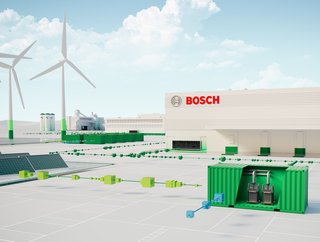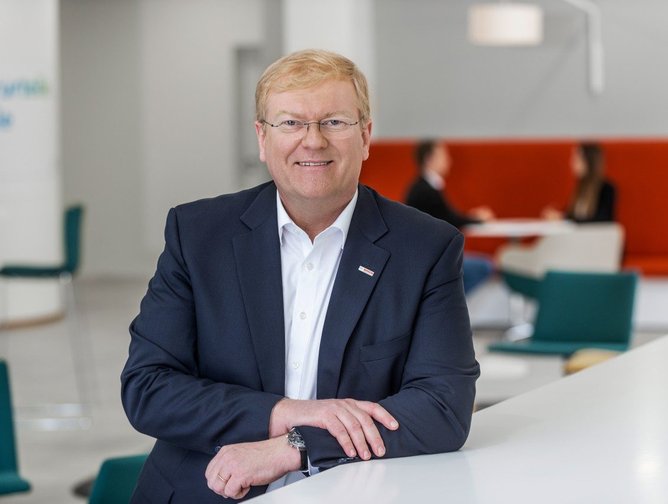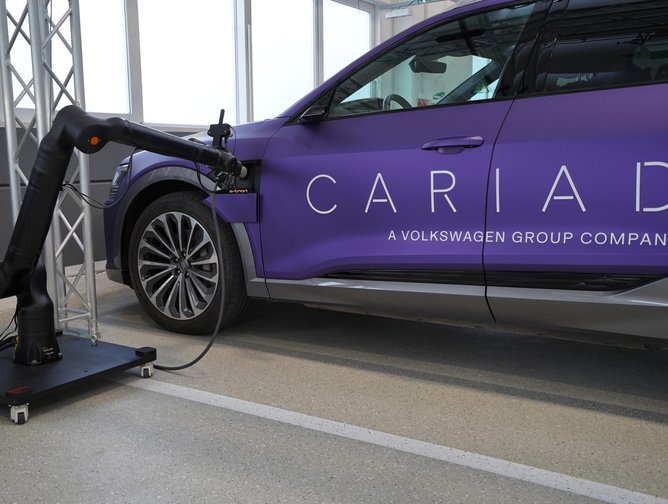Bosch is Betting Big on Hydrogen in Clean Energy Push

2023 proved an historic year for the fate of the planet.
Towards the end of what was the hottest year on record – for the first time ever, nearly 200 countries declared that the age of fossil fuels must come to an end.
This landmark agreement signed by 198 Parties during COP28 sets out an ambitious and unprecedented climate agenda to ‘transition away from fossil fuels’ – and includes a new specific target to triple renewables and double energy efficiency by 2030.
Welcome news to most, thousands of companies across the world are already innovating and transforming to accelerate the energy transition.
Among strategies being adopted, companies are switching to renewable electricity, electrifying their corporate fleets, increasing energy efficiency in buildings, empowering customers with more efficient technologies, and exploring alternative fuels.
Well ahead in the energy transition, Bosch Group’s worldwide production across 400 locations has been climate neutral (scopes 1 and 2) since 2020 – marking the first globally operating industrial enterprise to achieve climate neutrality.
Investing in renewables has been an important part of the journey for the multinational engineering and technology company – both for its own operations, and in driving forward its technologies and solutions for sustainable energy use by customers.
From heat pumps that optimise energy consumption in homes, to battery technology that accelerates the move to electro-mobility, Bosch is powering the clean energy economy.
For Dr Stefan Hartung, CEO and Chairman of the Board of Management of Robert Bosch GmbH (Bosch), the development of renewables is a way of resolving the conflicting goals of environment and economic sustainability.
“The transformation of energy systems needs to remain affordable, must not lead to power supply failures in businesses or households, and should leave fossil fuels behind wherever possible,” Hartung said.

Bosch Promoting Hydrogen as Key to Future Mobility
Which is why Bosch is focused on a two-pronged approach – electrification and hydrogen.
Already a leading supplier along the entire electromobility value chain – from chips, e-axles, and electric motors to battery technology and charging stations, Bosch is also betting on hydrogen.
“Green hydrogen is essential if we want to make our world climate-neutral. It makes sense to use it in nearly every sector,” says Hartung.
With a goal to reduce Scope 3 (upstream and downstream) emissions by 15% by 2030, Bosch sees hydrogen not just as a key to meeting global energy demand in a resource-efficient way, but as a storage medium in facilitating the efficient use of energy generated from renewables.
As the International Energy Association (IEA) describes it: “Clean hydrogen produced with renewable or nuclear energy can help decarbonise a range of sectors. Hydrogen-powered vehicles would improve air quality and promote energy security. Hydrogen can also support integration of variable renewables in the electricity system.”
Whether for green energy storage, transportation, or industrial processes, the potential of hydrogen is varied – and German businesses are leading in hydrogen plants in Europe.
Bosch is among the top 10 regarding patent applications for hydrogen production by electrolysis, playing a leading role in hydrogen storage and distribution and placing eighth in by the EPA as the only supplier in the ranking for automotive applications.
Its expertise lies in developing innovative applications of hydrogen as an energy carrier and offering customised solutions along the entire value chain – with a focus currently on the mobile fuel cell.
The mobile fuel cell is at the heart of the Bosch powertrain system for heavy vehicles, and recently went into volume production in Stuttgart – with orders already received from truck manufacturers in Europe, the US and China.
Bosch is also working on components for a hydrogen engine, which converts fuel directly into energy without first converting it into electricity. Set to launch this year, the engine is practically carbon neutral when powered by green hydrogen.
As countries and industries shift towards a more sustainable future, hydrogen is emerging as a key player.
The US government is pushing ahead with the development of H2 infrastructure and investing US$7 billion in the construction of hydrogen hubs.
Mike Mansuetti, President of Bosch in North America says these hydrogen hubs are an important building block for establishing a hydrogen infrastructure.
“We at Bosch support these measures and are exploring participation in several of these hubs. Our goal is to help drive forward the clean-energy economy in North America. This is an area where we can contribute our expertise in the production and provisioning of hydrogen.”
“We want our solutions to help drive forward the clean-energy economy in North America,” Mike Mansuetti, President of Bosch in North America said during the recently held CES 2024.

Bosch Accelerating Electromobility World
Already a leading supplier along the entire electromobility value chain, Bosch recently showcased new introductions during CES 2024 – including Automated Valet Charging.
EVs featuring this new technology can drive themselves to an available parking space with a charging spot, and at a touch of a button on a smartphone, a robot charges the battery before the car moves to another parking space.
“The unique combination of automated valet charging and automated valet parking makes Bosch a pioneer on the market,” Rückert said, adding – “every step toward greater convenience in electromobility increases not only its attractiveness but also its acceptance.”
The acceleration of electromobility worldwide is leading to huge demand for semiconductor material silicon carbide (SiC) – chips that extend driving range and make charging more efficiency, as their energy losses are up to 50% lower.
Producing SiCs since 2021 at its wafer fab in Germany, Bosch is now investing more than US$1.5 billion in a second one California in a bid to boost its semiconductor manufacturing network.






